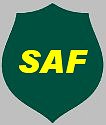
|
|
||||
A Day In the Life
of A Forester
A Sampling of Real Michigan Foresters and the Wide Diversity
of Career Paths
Place an image and the description
|
|
What do you do? I manage the Statewide Urban & Community Forestry (UCF) program for the Michigan Department of Natural Resources, Forest Resources Division. Most people don't put "urban" and "forestry" together in the same sentence, but everyone is intuitively familiar with urban and community forests. These are the forests where people live, work and play; the park trees that provide shade for our picnic tables and the street trees that define our downtown business district. As the UCF program coordinator I help establish, protect and manage the urban forest resources in cities and towns across the State. In addition to this, I also work with communities to celebrate Arbor Day, plan our State Arbor Day celebration and plant and care for trees we may plant on Arbor Day. Finally I manage Michigan’s Tree City USA program which is a highly visible award and recognition for cities large and small that shows they recognize the need for healthy trees and are committed to their care (https://www.arborday.org/programs/treecityUSA/). This job keeps me on my toes. One day I may be giving a presentation on tree pruning techniques to a group of homeowners, the next I am meeting with a group of city officials to plan a green infrastructure project, then I'm out doing a tree inventory in a park, and back to the office to prepare for a school presentation or work on awarding grant money to communities, schools and other groups to fund great urban forestry projects like tree planting. The Forest Resources Division has many other natural resource-related career paths. Other staff within our division work with insect, disease and invasive species issues, help landowners manage their forested lands, use technology for mapping trees or work in wildfire prevention. And this is just some of the things we do in our division. I have found that one of the benefits of a job in natural resources and in this department is that you get a great variety of opportunities and experiences. I've had opportunities to hunt bark beetles, fight wildfire in Michigan and out west, visit sawmills and plant/remove trees in a state park in downtown Detroit (Belle Isle). There are so many more opportunities within the department as a whole that it makes it a great place to work, from the beginning of your career to the end, whether your interest is in forestry, parks and recreation, fisheries, wildlife or even law enforcement. Ultimately, I love my job because I feel like I am making a real difference, learning about environment and natural resources, giving back to communities and individuals and having fun along the way! What kind of education is required? To be a forester for the DNR you need a bachelor's degree in forestry, or a related field. Classes in math, sciences, chemistry, computer mapping and natural resources are important for foresters. Urban foresters also need strong written and verbal skills, confidence in public speaking and familiarity with grant writing. Consider looking into colleges and universities with degree programs in forestry, natural resource management, environmental science or related majors. In Michigan, several large schools come quickly to mind including Michigan State University, Michigan Technological University and University of Michigan among many. Don’t be afraid to look outside of Michigan either and definitely be sure to look around for scholarship opportunities. What would you suggest to people considering a career in forestry or natural resource management? Go for it! If you are one of those people who looks up when your hiking, tries to identify leaves and pine cones, volunteers to plant trees or just finds peace under the shade of a tree, you have the potential to be a great forester. There are so many amazing careers in Forestry and natural resources that can cater to your specific interest and skill sets. Consider applying for a seasonal or student position within one of the DNR’s divisions, (http://www.michigan.gov/dnr/0,4570,7-153-10366_11866---,00.html) contacting the Michigan Americorp program (http://www.michigan.gov/mcsc/0,4608,7-137-8074---,00.html), or investigating opportunities more locally by getting involved with your county conservation district (http://macd.org/local-districts.html) or city Department of Parks and Recreation.to get some experience. The bottom line to any successful career is to love what you're doing. And really, who doesn't love trees? Why did you become a forester? I grew up in a city and didn't know anything about trees, but I was drawn to the parks and green spaces in my neighborhood. In college I studied meteorology and geography and ended up working one summer on a PhD student’s project monitoring the urban forest climate in Chicago, which really peaked my interest. I eventually ended up living and working in Chicago before earning a degree in Forestry and focusing on Urban Forestry. Along the way I’ve had the opportunity to work in the tree nursery industry, municipal forestry and private sector mapping natural resources. Ultimately, I’ve found my passion is getting to work with my two favorite things: trees and people. I really get the best of both worlds, city living coupled with working in nature by being an urban forester! Feel free to contact me if you would like to discuss more about my job or other opportunities in natural resources in Michigan and with the Michigan DNR or elsewhere.
|
![]() TOP
Press arrow to return to
the top of this page.
TOP
Press arrow to return to
the top of this page.

This website is maintained
by Bill Cook, Michigan State University Extension
Forester in the Upper Peninsula. Comments, questions,
and suggestions are gratefully accepted.
Last update of this page
was
11 August, 2017